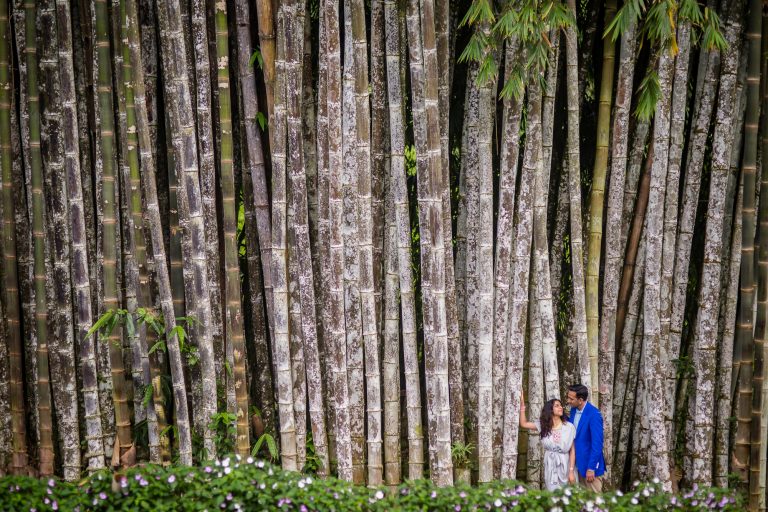
Nisha & Jason | Ceylon Tea Trails Elopement
Nisha and Jason chose Summerville Bungalow, Tea Trails Sri Lanka, as the idyllic setting for their gorgeous Sri Lanka wedding elopement.
At Western weddings, guests get offended when they see the photographer eating the wedding food. At Asian weddings, they get offended if you are not eating!
But Asian weddings encompass far more than fantastic hospitality. They overflow with vibrant colors, cherished traditions, captivating music, and graceful dancing!
The following galleries are Mendhi parties, Hindu weddings, Sikh weddings & Muslim weddings from around Asia & the UK.

Nisha and Jason chose Summerville Bungalow, Tea Trails Sri Lanka, as the idyllic setting for their gorgeous Sri Lanka wedding elopement.

Priya and Dipesh’s Indian Wedding Koh Samui was held at the Intercontinental.
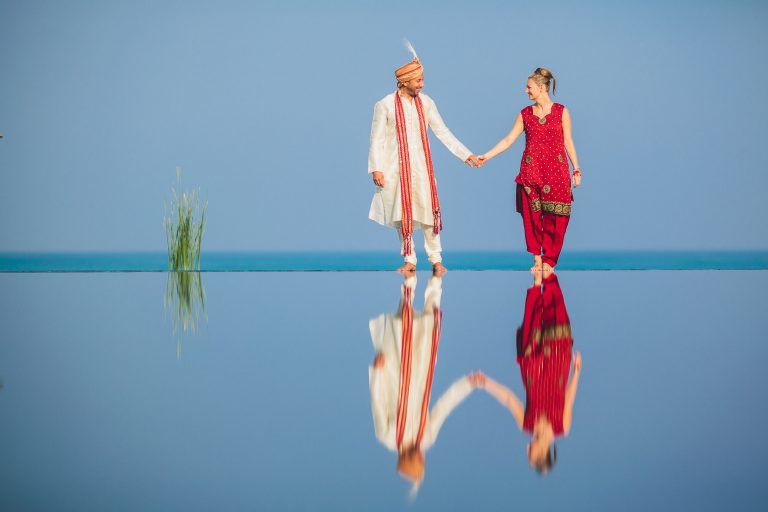
Mel & Jay’s incredible Sikh ceremony at Gurdwara Siri Guru Singh Sabha Phuket (Wat Sikh) & wedding at Sava Villa Natai Beach Phang Nga.
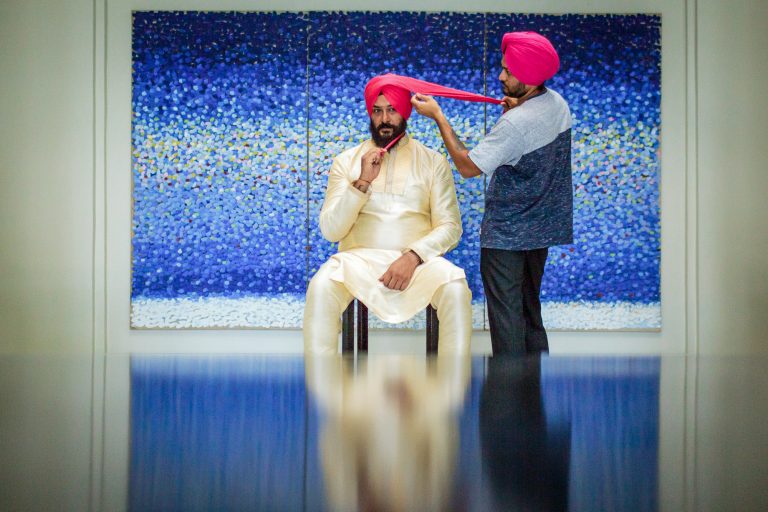
Nicole & Vaneet had their unique Sikh & Western wedding at Aleenta Phuket Phang Nga Resort in Thailand.
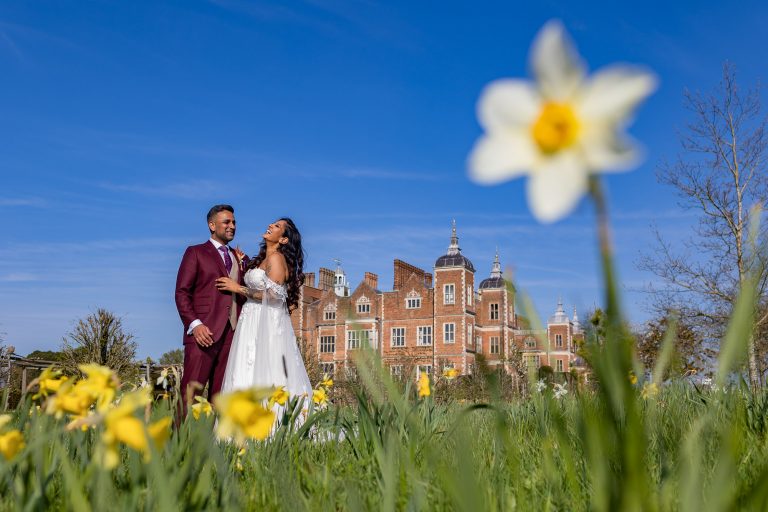
Chuki & Hitin’s wonderful Hatfield House Wedding in Herts by Hertfordshire Wedding Photographer Aidan Dockery
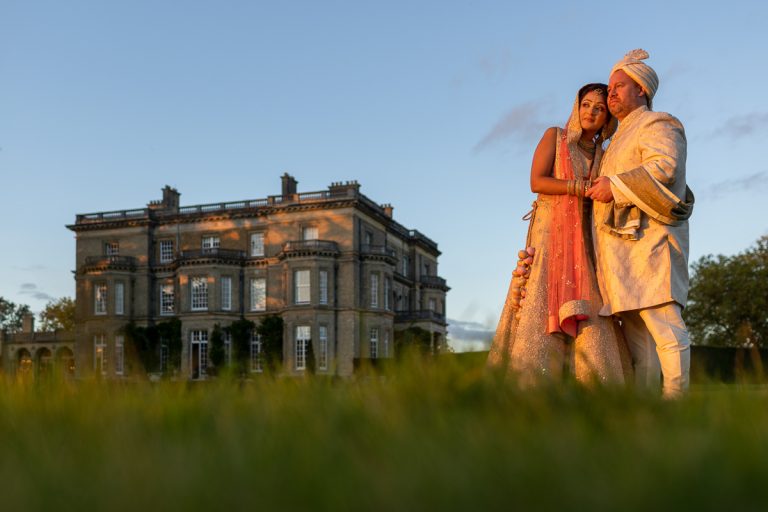
Neha & Charlie’s colorful Hindu wedding at Hedsor House in Taplow Buckinghamshire.by Hedsor House Wedding Photographer Aidan Dockery.
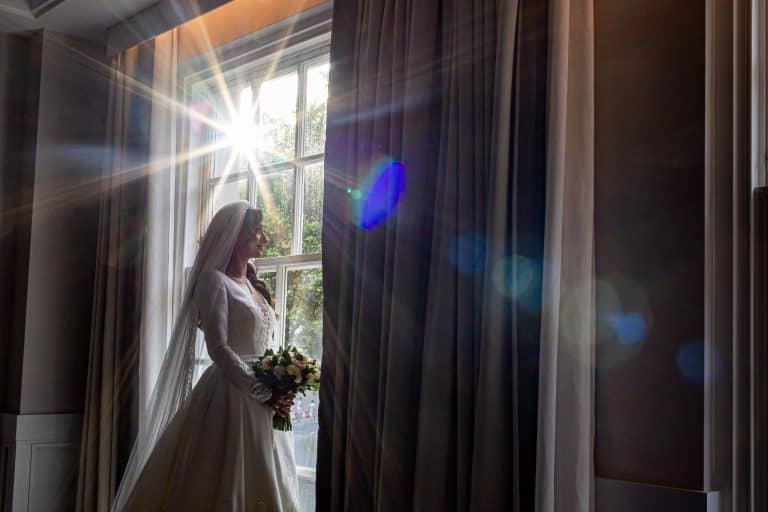
Sarah & Zaid married at The Biltmore Mayfair in the heart of London
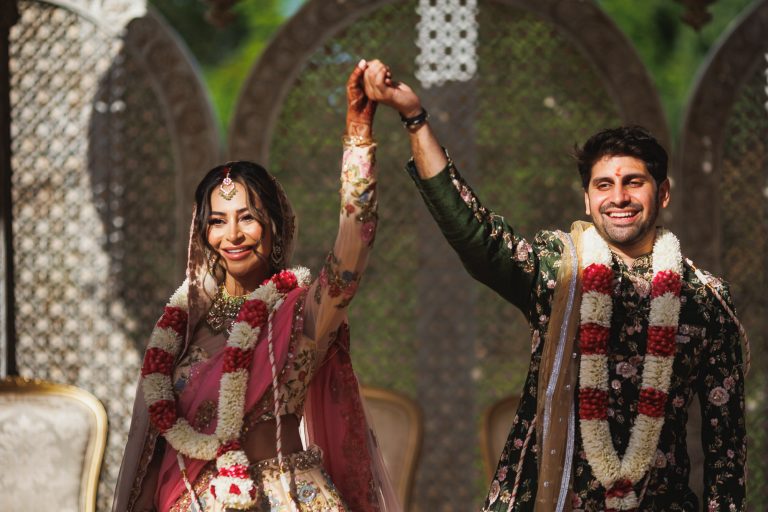
Fairmont Windsor Park, an enchanting hotel in the English countryside, by Fairmont Windsor Park Wedding Photographer Aidan Dockery
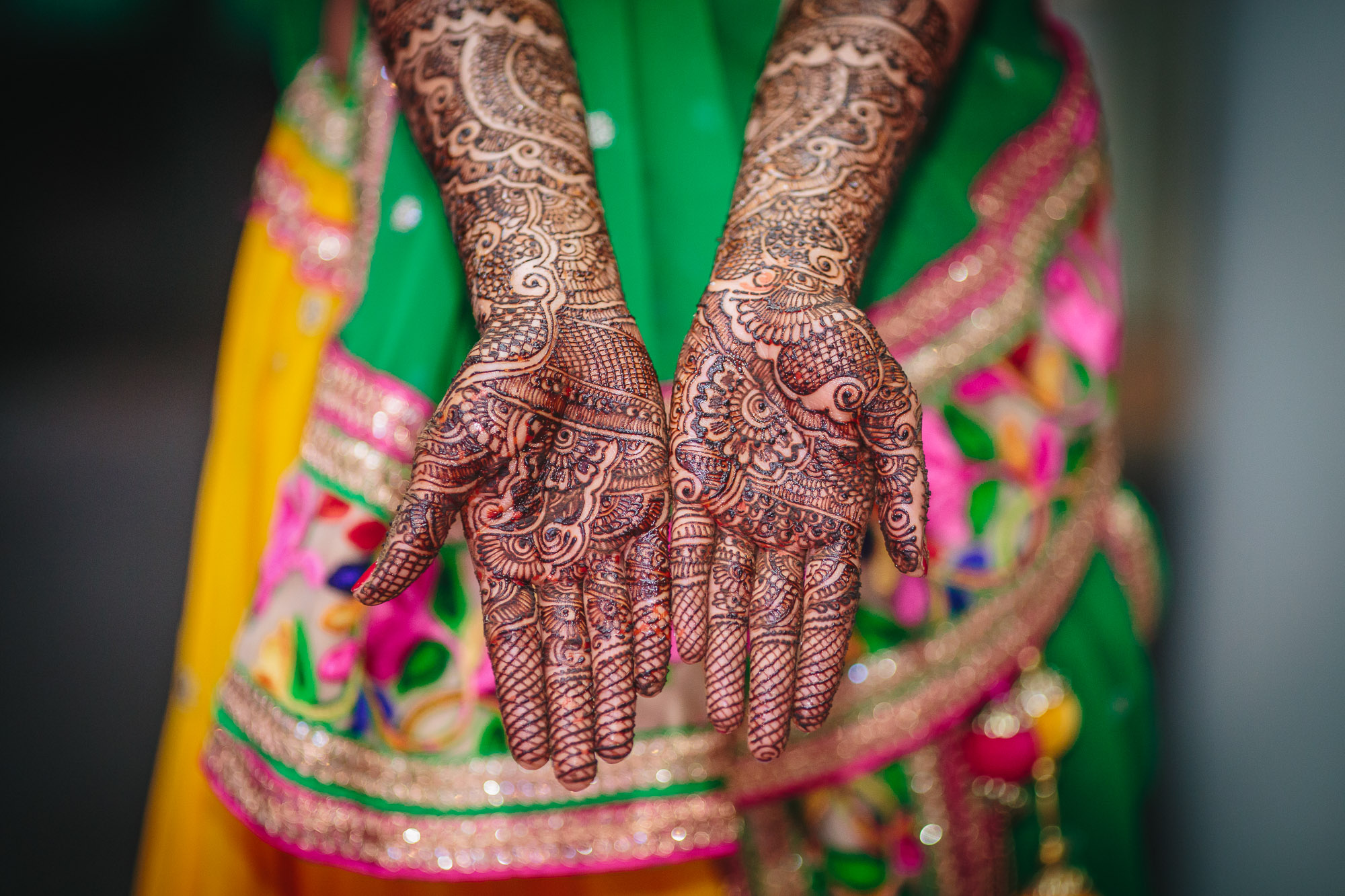
A mehndi party, also known as a henna party, is a traditional pre-wedding celebration in South Asian cultures. It is a women-centric event where the bride, her female family members, and friends gather to celebrate. They have henna applied to their hands and feet. The mehndi ceremony takes place a day or two before the wedding at the bride’s or groom’s home or a rented event space. The following are some of the activities that take place during a mehndi party:
The main highlight of the mehndi party is the application of henna on the bride’s and guests’ hands and feet. Henna artists create intricate designs using a henna cone: music and dance. Guests dance to traditional music, and the bride is often seated on a decorated stage where she receives gifts and blessings. Delicious traditional food and beverages are available.
Various games and activities, such as singing and dancing competitions, entertain the guests. The bride receives gifts from her family members and close friends. In some cultures, the bride’s mother-in-law or sister-in-law may also give her gifts during the mehndi ceremony. The mehndi party is a joyful celebration where the bride and her loved ones gather to celebrate the upcoming wedding.
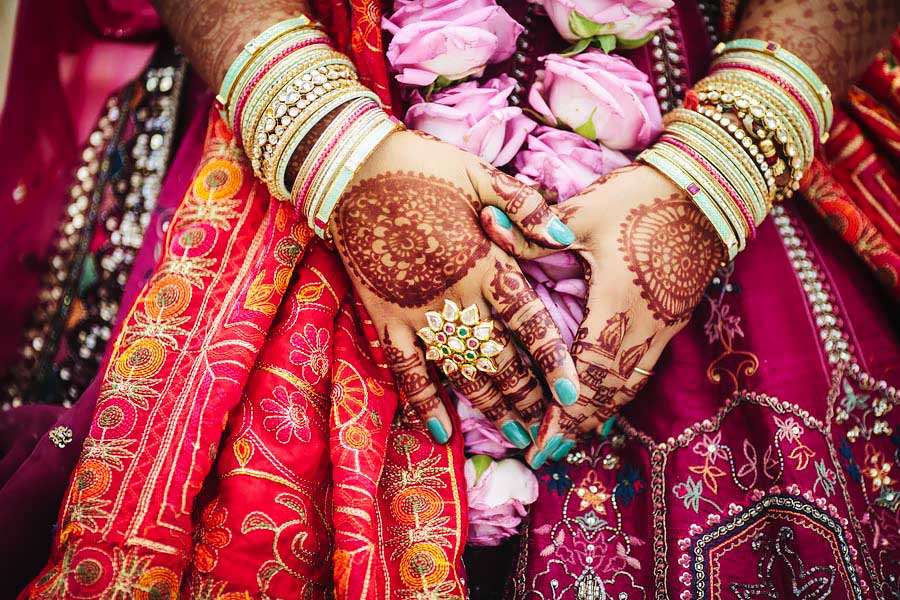
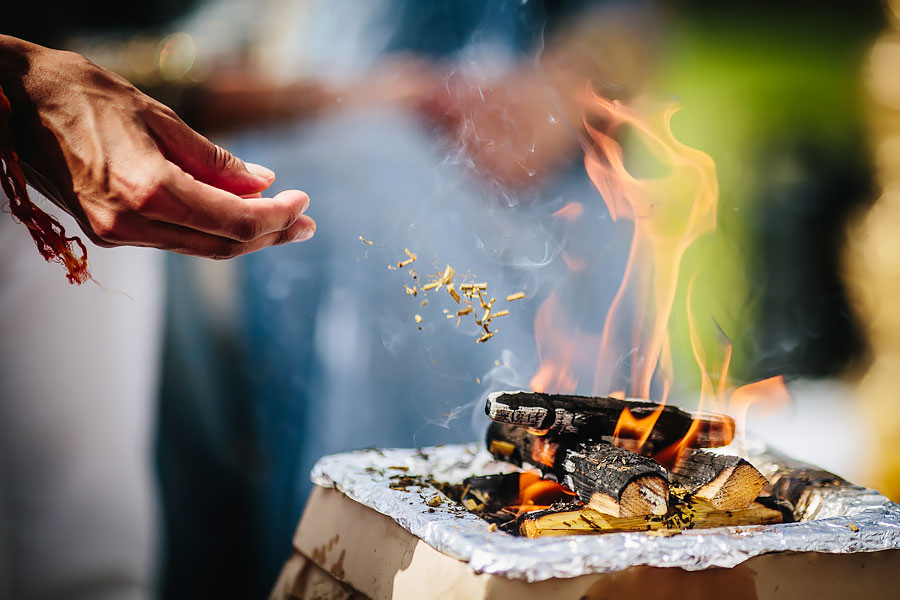
Hindu weddings are colorful, festive, and rich in traditions that date back centuries. The pre-wedding rituals consist of the engagement ceremony, which people call Sagai or Mangni. Additionally, they include the haldi ceremony, where people apply turmeric paste to the bride and groom’s bodies to purify them.
The main event, the vivah or kanyadaan, involves a series of rituals that symbolize the union of two individuals and their families. The Saat Phere involves the Pheras, the seven sacred rounds the bride and groom take around the holy fire.
The groom ties a sacred necklace of black beads and gold around the bride’s neck to signify their marriage.
The groom applies sindoor, a red powder, to the bride’s hair parting to symbolize their union.
The friends and family of the bride and groom honor them with food, music, and dance during the grand finale of the wedding celebration.
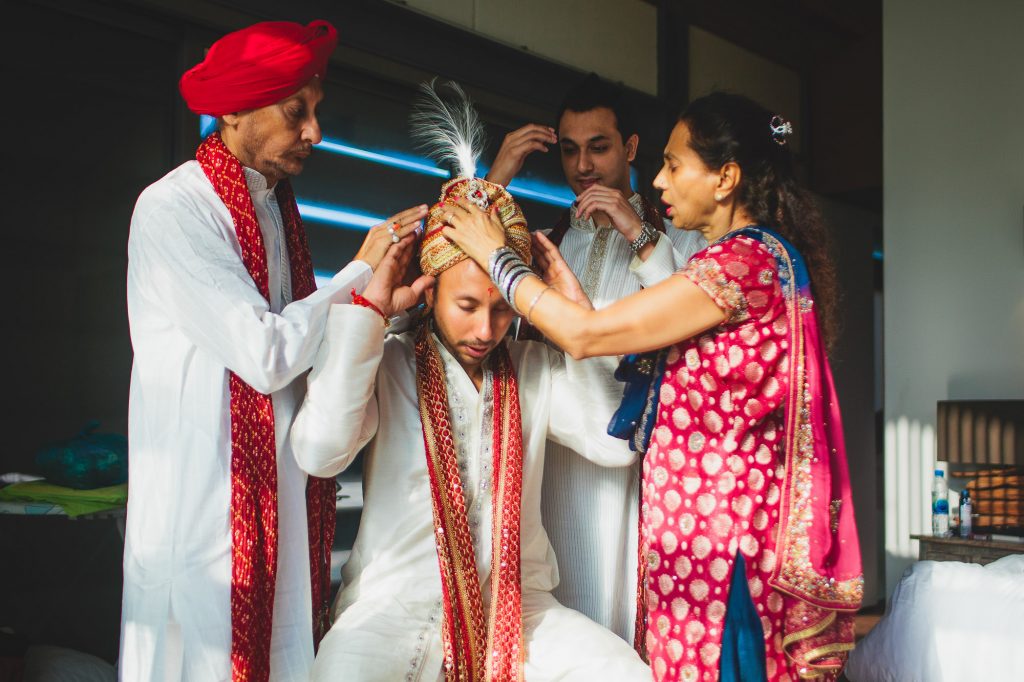
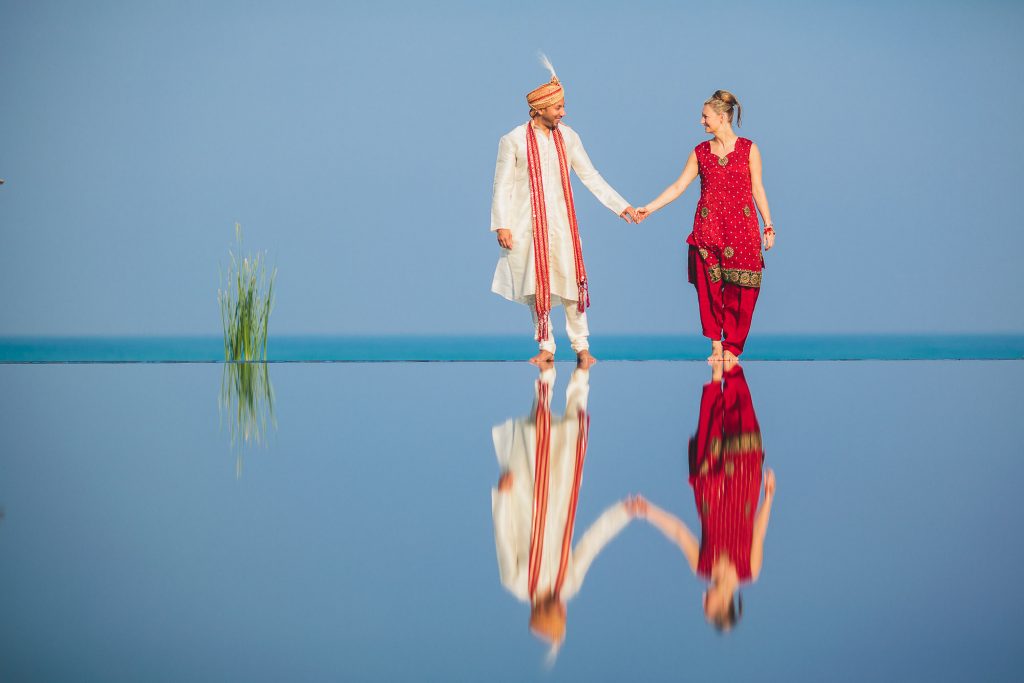
Sikhs celebrate Anand Karaj, also known as Sikh weddings, as sacred and joyous occasions. Here are some of the most significant Sikh wedding traditions:
Also known as Kurmai, this is the first step in a Sikh wedding. During this ceremony, the families of the bride and groom exchange gifts, sweets, and dry fruits.
This ceremony takes place on the day of the wedding. It is when the bride’s family welcomes the groom’s family. The two families exchange garlands and hug each other, symbolizing the union of the two families.
The Anand Karaj Ceremony takes place in a Gurdwara. The bride and groom sit in front of the Guru Granth Sahib, the holy book of the Sikhs. The ceremony starts with the Ardas, followed by singing hymns and exchanging the four rounds of vows (Lavan). The bride and groom become married when the groom places a saffron-colored cloth over the bride’s head.
After the wedding ceremony, the bride and groom’s families hold a grand reception to celebrate the newlyweds. The reception usually occurs on the same day as the wedding or the day after.
The Langar is a significant part of the Sikh wedding tradition. The community kitchen serves food to all the guests, irrespective of their caste, religion, or social status.
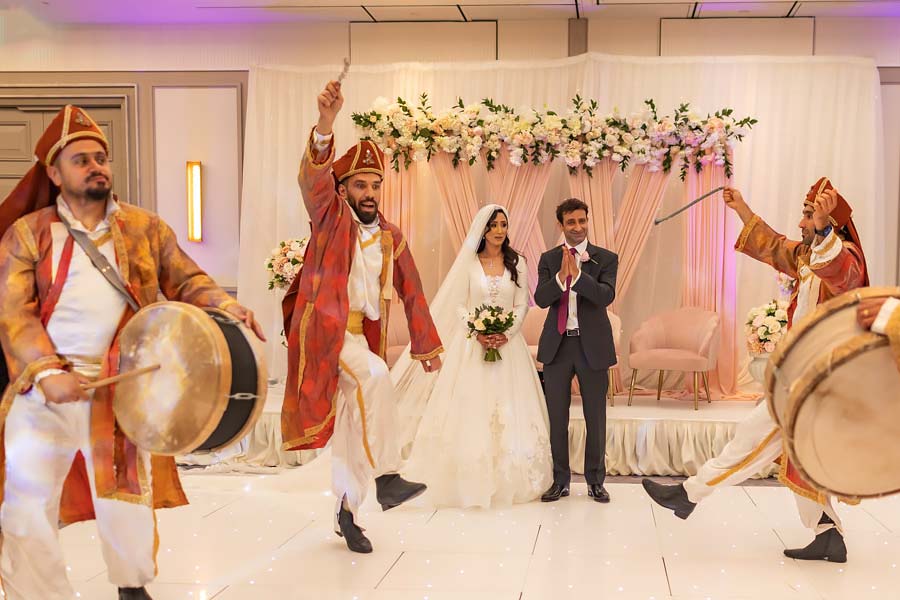
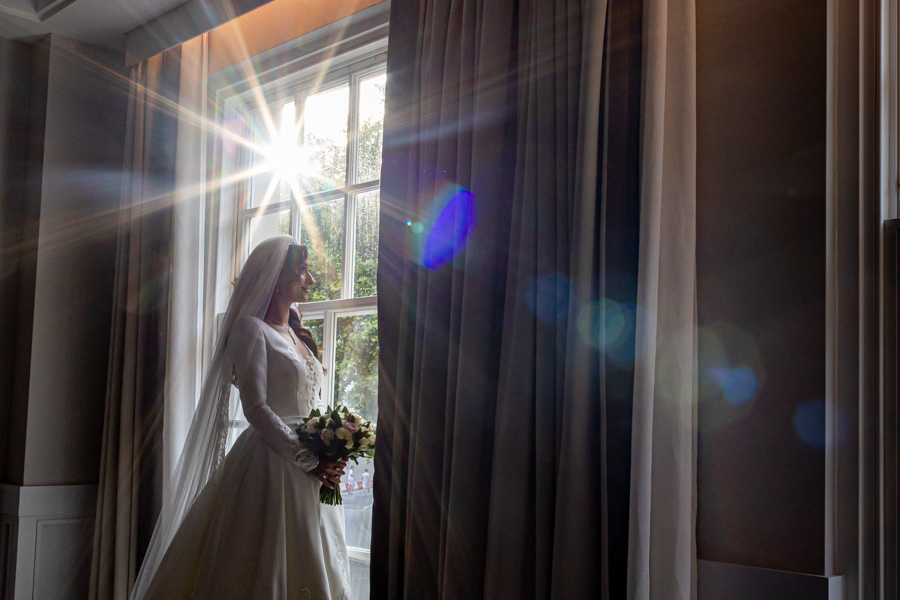
Muslim wedding traditions vary across cultures and regions, but there are some common elements of a Muslim wedding. Here are some of the most common traditions:
The engagement, or “nikah,” is the first step in the wedding process. It involves the formal agreement between the bride and groom’s families to marry.
The groom must give the bride a mandatory gift called the mahr, which they agree on in advance and present during the wedding.
Mehndi is a pre-wedding celebration involving a professional artist decorating the bride’s hands and feet with henna.
Nikah is the wedding ceremony, which involves signing the marriage contract in the presence of an Islamic scholar. The couple will exchange vows and rings, and the groom will give the mahr to the bride.
The groom’s family hosts a post-wedding reception called Walima, which invites guests to celebrate the union of the bride and groom. Depending on the family’s preference, it can be a large or small event.
In some Muslim cultures, the bride and groom may wear traditional clothing, and the bride may choose to cover her hair with a hijab.
During many Muslim weddings, the ceremony and reception separate men and women, with men in one area and women in another.
© 2024. All rights reserved. No unauthorised reproduction permitted.